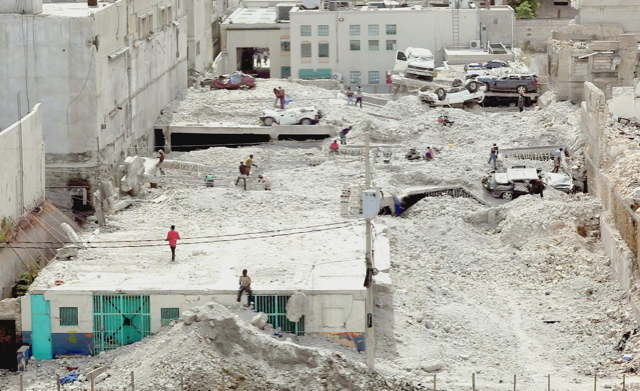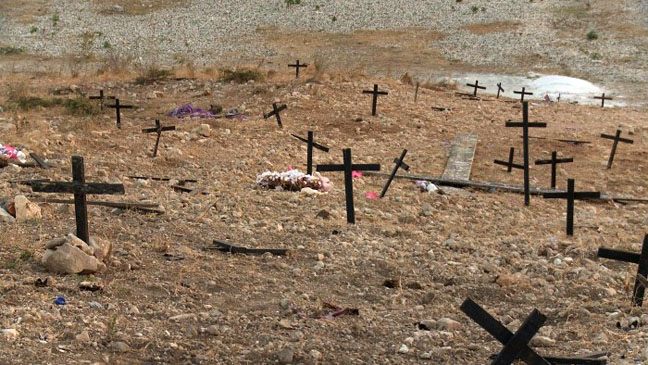By James Haseltine
Directed by Raoul Peck
Acclaimed Haitian filmmaker Raoul Peck delivers a justifiably bitter exposé on the complexities of international humanitarian aid in response to the devastating 2010 Haiti earthquake in the hard-hitting documentary, Fatal Assistance.
Peck drives home a powerful damnation of Western post-disaster idealism that enlivens an air of lament and disappointment over what could have been if things had been done differently. Utilising a narrative device that presents the views of two onlookers who emit a personal attachment to the often challenging and controversial redevelopment programme, Peck takes the viewer on an insightful journey analysing the unecessarily convoluted multifaceted imposition of foreign intervention.
Joséus Nader, an engineer working for Haiti’s Ministry of Public Works describes his movements on January 12th 2010 in the opening moments. Opening with a strong, rooted character with personal attachment sets the tone for the remainder of the film and gives it a truly heartbreaking reality. As Peck delves deeper into the political indictment at the crux of the documentary, the hope for the future expressed by both narrative onlookers begins to wane under the immense burden left in the destructive wake of the earthquake.

Peck’s agenda employs a broad scope throughout. By limiting local insights of personal loss to a few largely forgettable characters Peck misses an opportunity to flesh out the rooted desperation of a nation living in a disaster. However, with such a broad scope Fatal Assistance achieves its greatest impression with a dedicated attack on international motivations.
As Nader points out early on, foreigners may have brought food and water but “they also came for their own gain”, a point that Peck incessantly seeks to expose, introducing the development of the idealistic IHRC with a cynical tone that ensures the sincerity of hopeful nationals is difficult to assess. We’re given reason to believe that the IHRC may be the building block Haiti has been waiting for and archival footage of Bill Clinton stating “This is the best chance, in spite of this horrible earthquake, to escape the darker chapters of the past and build a brighter future,” only cements that view further. But, lurking beneath this shimmering torch of hope is a sincere lack of urgency.
Purposefully, and frequently, Fatal Assistance is filled with foreign idealistic rhetoric from major international players and then countered by Haitian realism to portray an unrivalled sense of distrust and corruption.
The unnuanced message of Fatal Assistance thrives on its ability to enliven a sense of disappointment in a global audience. This is not a film made just for Haitian nationals to seethe over. The one-sided message may come off a little strong but it highlights issues with the bureaucracy of a multitude of different organisations that, despite their best efforts and interests, fail to match the urgency of the matter with a suitable reaction.
Fatal Assistance uses the capital city, Port-au-Prince as a microcosm of the nation’s plight. However, the disaster spread beyond the capital, into boundless lands of ‘temporary’ housing for all those displaced and Peck is smart to remind the audience that while the 2010 earthquake is to blame for the current situation, Haiti’s problems extend back decades. It is with this constant reminder that Peck draws on one of the most disturbing aspects concerning the foreign intervention, an aspect that Nader dutifully revealed earlier.
Raoul Peck’s uncomfortable exposé of Western idealism, foreign intervention and insincere motivations raises just as many questions as it answers but is a truly important film for a global audience.
Watch Fatal Assistance from the 31st August at FilmDoo.com! (UK & Ireland only)






